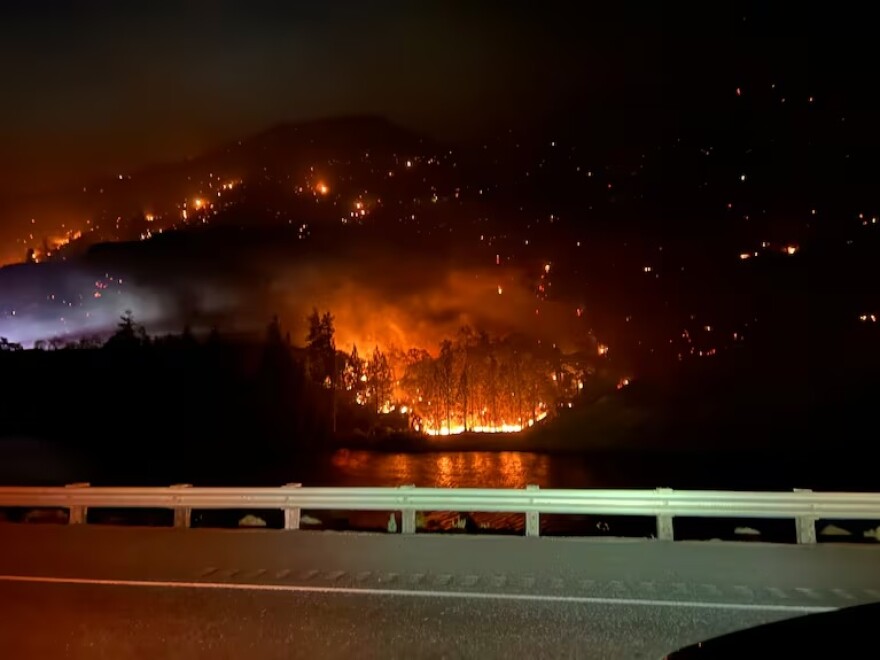Oregon Gov. Tina Kotek declared a state of emergency on Wednesday warning the state’s wildfire threat is only expected to increase as the summer continues.
The Cram Fire, east of Madras, is currently tearing through tens of thousands of acres and filling the Central Oregon skies with smoke. The fire has grown quickly in recent days helped by gusty winds and high temperatures.
“Oregon is already experiencing a devastating wildfire season that will have lasting consequences. The summer is only getting hotter, drier, and more dangerous — we have to be prepared for worsening conditions,” the governor said in a statement.
The statewide emergency declaration is a way for the governor to access more state resources; she can direct all state agencies to support her efforts in responding to wildfires, and it opens up the ability to deploy the National Guard.
Several fires have already ripped across the state this year. Early on in the season, forecasters warned this summer was shaping up to be an intense fire season.
So far, it seems right.
A human-caused fire, the Rowena Fire, tore through an area of the Columbia River Gorge west of The Dalles, destroying more than 50 homes. People across other parts of the state have already experienced evacuations due to looming wildfire threats.

The Oregon Department of Environmental Quality has issued air quality warnings for Jefferson and Klamath counties.
Kotek urged all Oregonians to subscribe to emergency alerts on ORAlert.gov and have a go-kit and evacuation plans ready.
The state has grappled in recent years with how to foot the growing price tag as wildfires continue to ravage farms and ranches and destroy homes. Lawmakers held an emergency session in December to pay for $218 million in fire costs from 2024, which saw more than 1.9 million acres burned.
This legislative session, which ended in June, the Legislature approved a measure to tax oral nicotine products and tap the interest on Oregon’s rainy day savings account and put the money toward wildfire mitigation efforts.
But even then lawmakers noted the looming threat of a bad wildfire season and most agreed the measure, which was projected to generate about $43 million per year, wouldn’t be enough.
“This isn’t going to fix everything, but it gets us part of the way there through some very simple, reliable streams of revenue,” said Sen. Anthony Broadman, D-Bend, said on the Senate floor at the time, “Wildfire is a statewide threat to our health, to our economy, to our way of life.”



